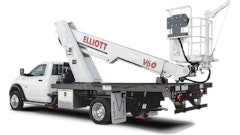
When getting an insurance quote for your rental business, the insurer will usually ask for a copy of your current rental agreement. (If they don’t, find a new insurance company.) Why is this document an important part of the underwriting process? What is the insurance company looking for? They are ensuring that you’ve done everything possible to protect your assets. And your rental agreement should contain key elements and verbiage that reduce everyone’s level of risk.
A well-written and clearly presented rental agreement creates a winning scenario for you as well as the renter and the insurance company. You win when your agreement addresses all of the contingencies and costs of operating the business. You win when customers understand and agree to abide by the agreement or the consequences of default. You win every time you avoid a legal dispute or insurance claim.
A good rental agreement does not ensure everyone will be satisfied in the event of an unfortunate incident. But when the rules are outlined, the outcome of the incident is clear, leaving little room for dispute or blame. The significance of the rental agreement is just like any other contract. A rental agreement is really a list of previous problems that can hopefully be avoided. All of the “legalese” is included in the agreement because business owners want assurance of protection, especially if they have been burned in the past. In addition, a good agreement also protects the insurance company. Remember, your insurer sees more problems annually than you will see in your business lifetime, so they are well aware of the relative risk. But other business owners have unfortunately discovered the hard way that all the bases weren’t covered the way they should be.
A typical rental agreement contains several key provisions designed for your protection. Some provisions are so important that an insurance company will not insure you without them. Other provisions work together to eliminate or contain your liability for loss or damage to property or to persons at your store.
Key Provisions:
- Hold-Harmless Agreement - the rentee agrees to assume responsibility for all personal injury and property damage caused by the rental equipment.
- Indemnity Agreement - the rentee is agreeing to reimburse you the rentor for any liability the firm incurs, even liability to the rentee.
- Inspection Clause – creates a duty to inspect the equipment by the rentee, making them share in this responsibility along with the rental company.
- Merger Clause – should be on the front of the contract, preferably in bold print. This clause (which should be signed by the rentee) basically states that the rentee has read all of the terms and conditions of the contract and agrees with them. In order to validate your rental agreement, always obtain a “signed rental contract" from the rentee.
- Conversion Warnings – informs the rentee that failure to return the rented goods may constitute conversion, larceny, or other form of theft designated in their state statue.
The best way to avoid legal disputes is to be clear in your rental agreement as well as your disclosure of rentee responsibility. The contractual provisions described here will help protect you. Your attorney as well as national and state rental associations are good sources of information about the laws that affect the actual language used in your rental agreement.
Steer clear of the blame game. Rather than burying important clauses in small print or glossing over them during the rental presentation, thoroughly educate customers before they sign on the dotted line. Correctly handled and worded, your rental agreement can protect your business and renters and keep your insurance company happy. Now that’s a win-win-win situation. As the saying goes, “the best offense is a good defense.” And your rental agreement is your first line of defense.




















